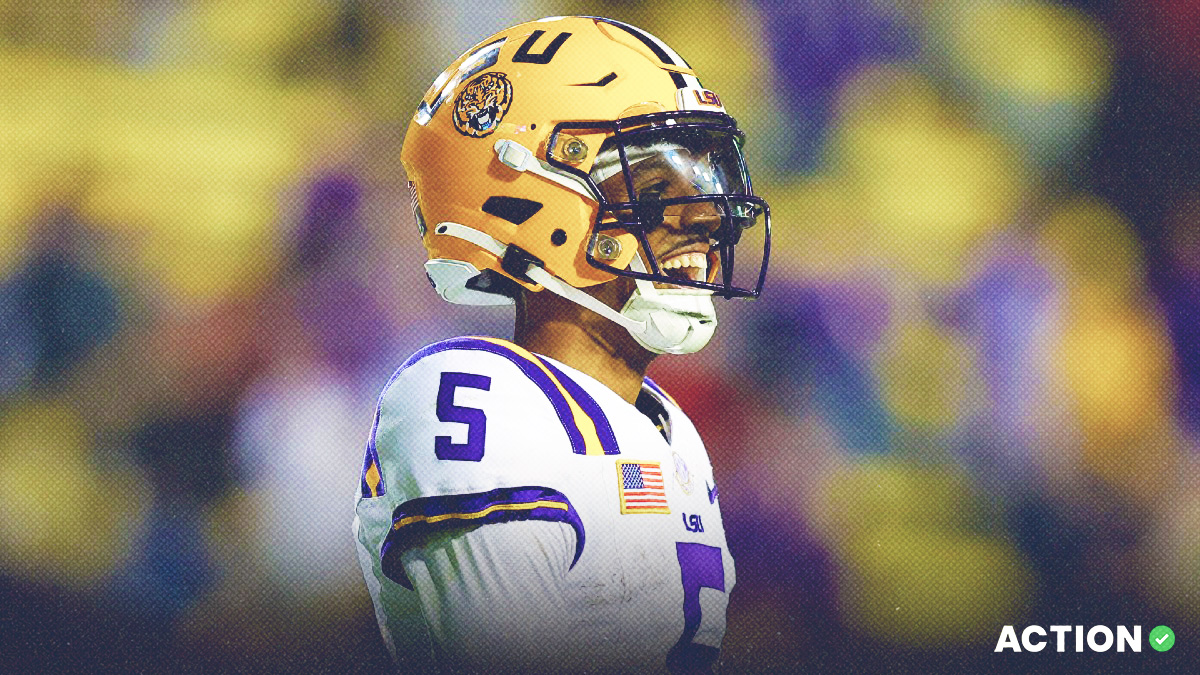On Dec. 9, the Heisman Trophy will be announced. Supposedly, it will be awarded to the nation's “most outstanding player.”
Unfortunately, that doesn't always happen. Instead, it goes to the “Best Player On a Team Playing For a Conference Title.”
Imagine a player on a three-loss team who leads the nation in total offense, passing touchdowns, touchdowns responsible for, passer rating and rushing yards for a quarterback. He's also No. 2 in passing yards.
Can you picture that player, Heisman voters? Now imagine LSU's Jayden Daniels was playing for a conference title. Does that make a difference? Should it? No.
But if Daniels was playing next week on Championship Saturday, this year&# 39;s Heisman race would be a landslide.
How much has a team's win-loss record impacted who won the Heisman? In 16 of the past 22 seasons, the Heisman Trophy winner was on a team with fewer than two regular-season losses.
Some voters will want to penalize Daniels' record-breaking season because LSU has three losses and won't be playing next weekend. Why is that? Maybe it's because LSU's defense has more holes than Swiss cheese – and yes, I know that's insulting to Swiss cheese.
LSU has lost three games to teams currently ranked No. 5 (Florida State), No. 8 (Alabama) and No. 12 (Ole Miss) because the Tigers defense allowed 45, 42 and 55 points, respectively.
For all his attributes, Daniels does not play defense.
Daniels is, however, only the second player in SEC history with more than 3,500 yards passing and 1,000 yards rushing. The other was Texas A&M's Johnny Manziel, who won the 2012 Heisman despite playing for a two-loss team that also didn't play in a conference title game.
Si nce 2014, in the College Football Playoff era, every Heisman Trophy winner except one was on a team that either played in a conference title game or in the College Football Playoff.
The only exception was Louisville's Lamar Jackson in 2016, who won despite the Cards' 9-3 record. In the past 24 years, the only other Heisman winners who played on teams with three regular-season losses were Baylor quarterback Robert Griffin III (2011) and Florida quarterback Tim Tebow (2007).
Daniels is averaging 417 yards per game total offense – more than any Heisman winner in the last 11 years. However, against Power 5 competition, he's actually averaging more at 437 yards per game.
Most remarkably, against Power 5 opponents this year, he's averaging 10.35 yards per play. Every time he takes a snap, LSU averages a first down.
Daniels literally is the “Human First Down.” (Note to LSU, please send me a T-shirt, size large, when you print those up).
Undoubt edly, a lot of years the “most outstanding player” also happens to be on one of the nation's best teams. But it shouldn't be a requirement.
Maybe that thinking is changing – at least, it is on social media.
I recently conducted a couple of Heisman polls on my Twitter (X) feed. On Nov. 17 and again on Monday, I asked, “Who gets your Heisman Trophy vote?” between Daniels, Oregon QB Bo Nix, Washington QB Michael Penix Jr. and Ohio State WR Marvin Harrison Jr.
Those two Twitter (X) polls received a total of nearly 48,000 votes. Daniel received 41% of the vote, followed by Nix (26%), Washington Penix (21%) and Harrison (12%).

